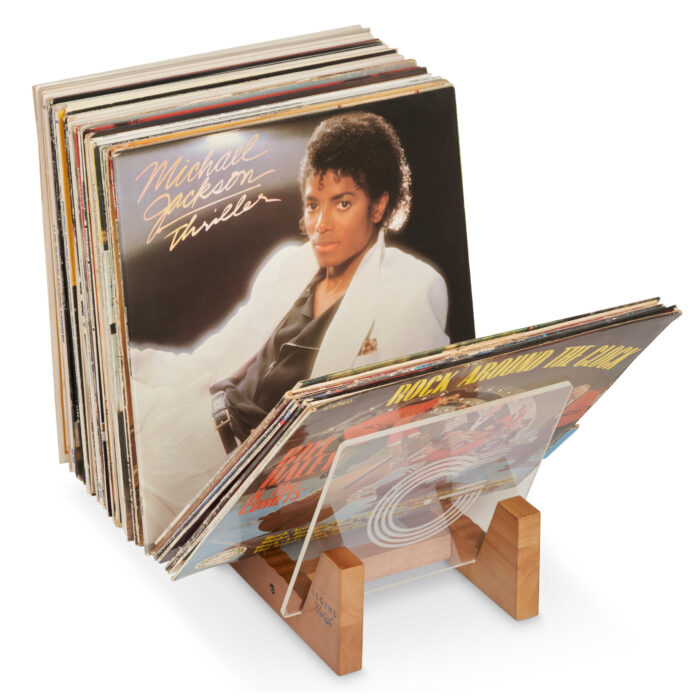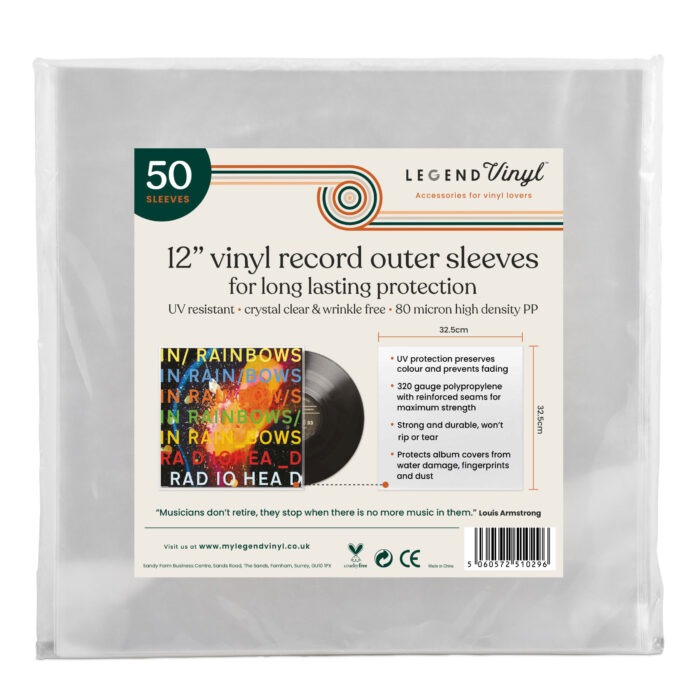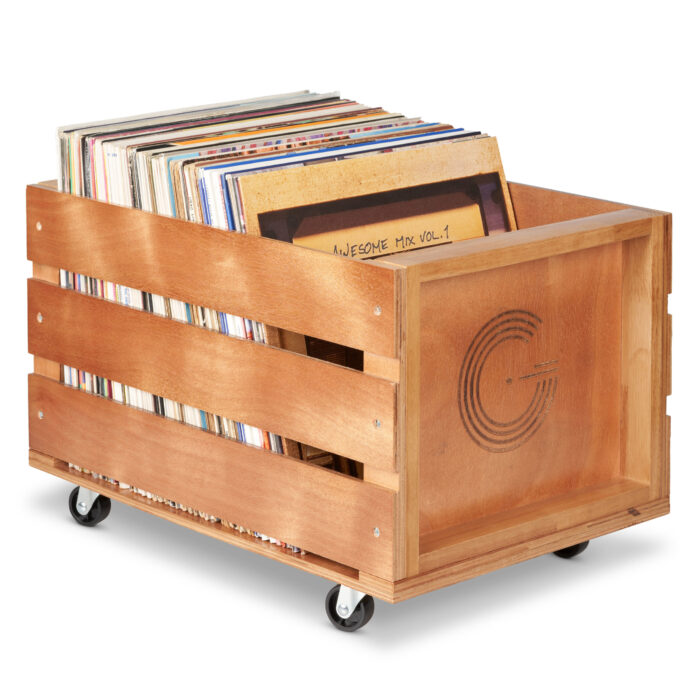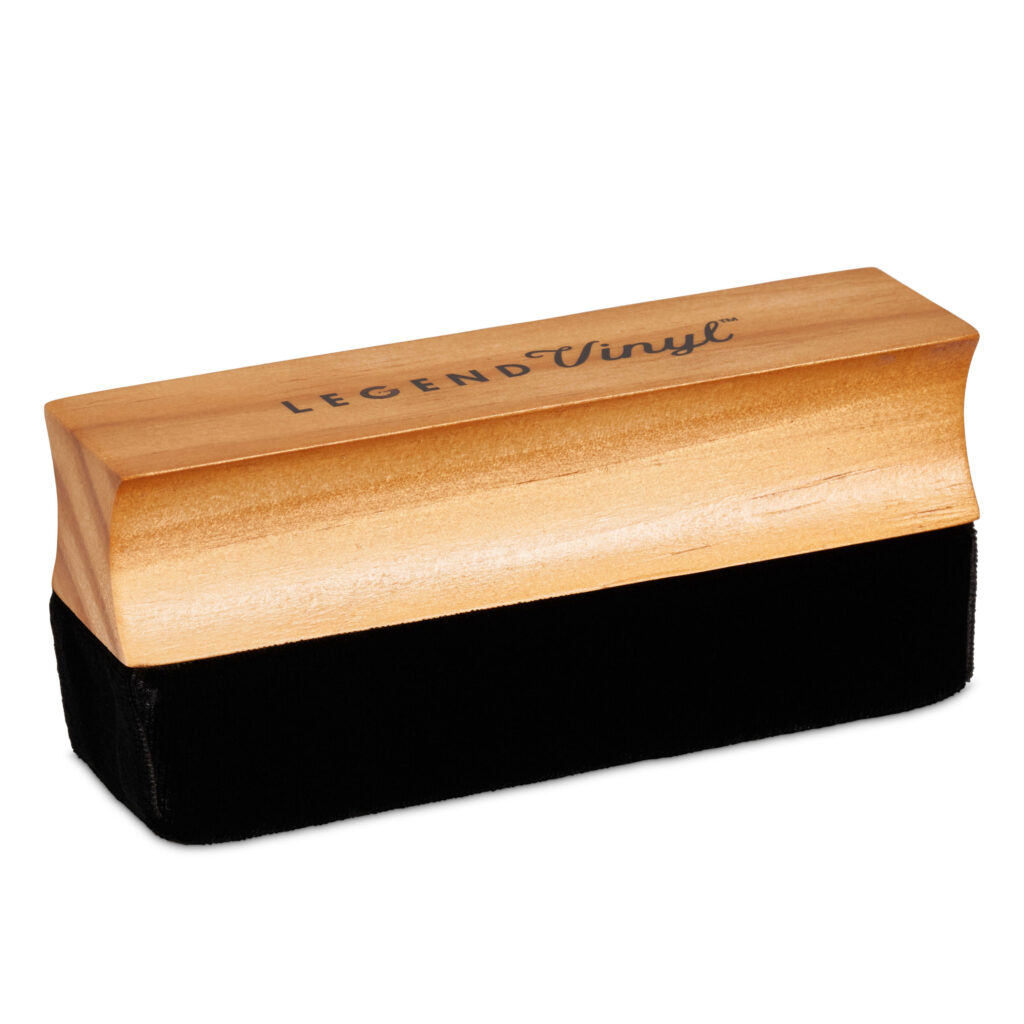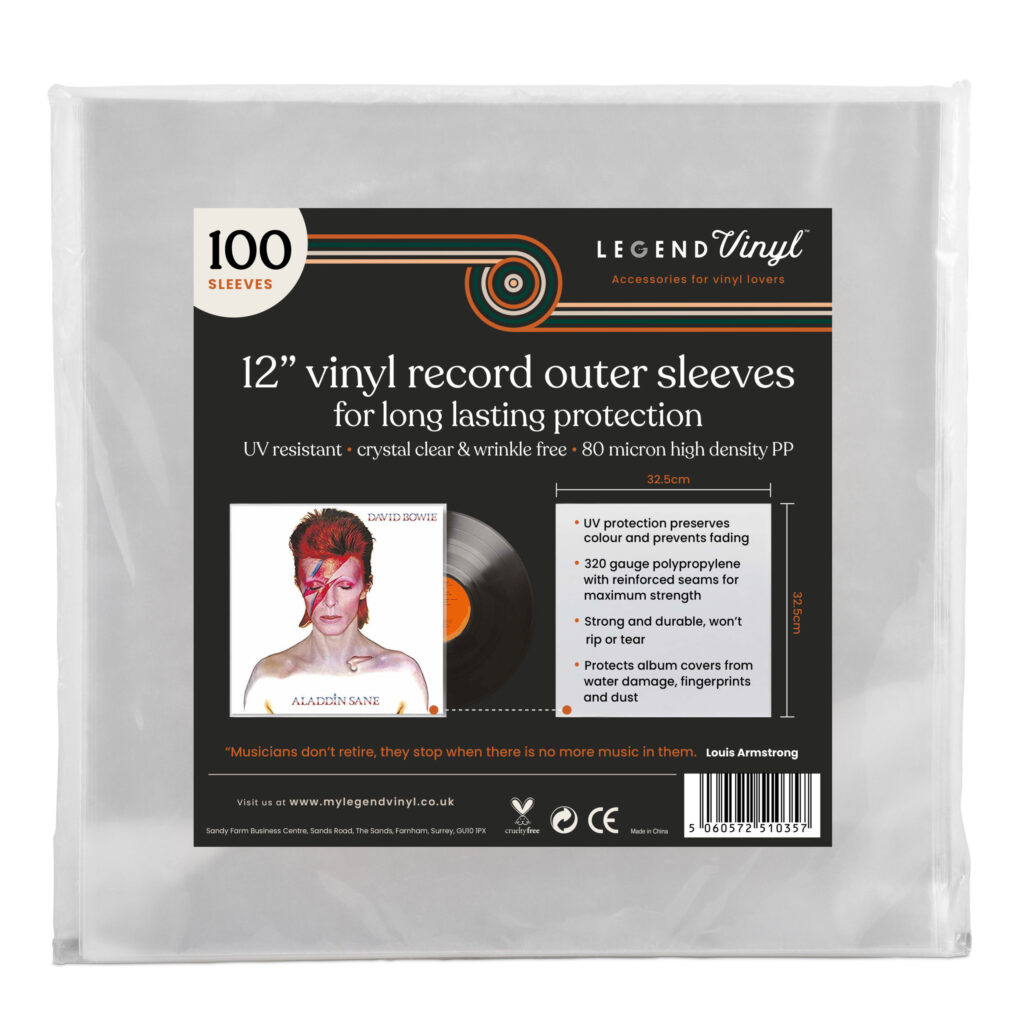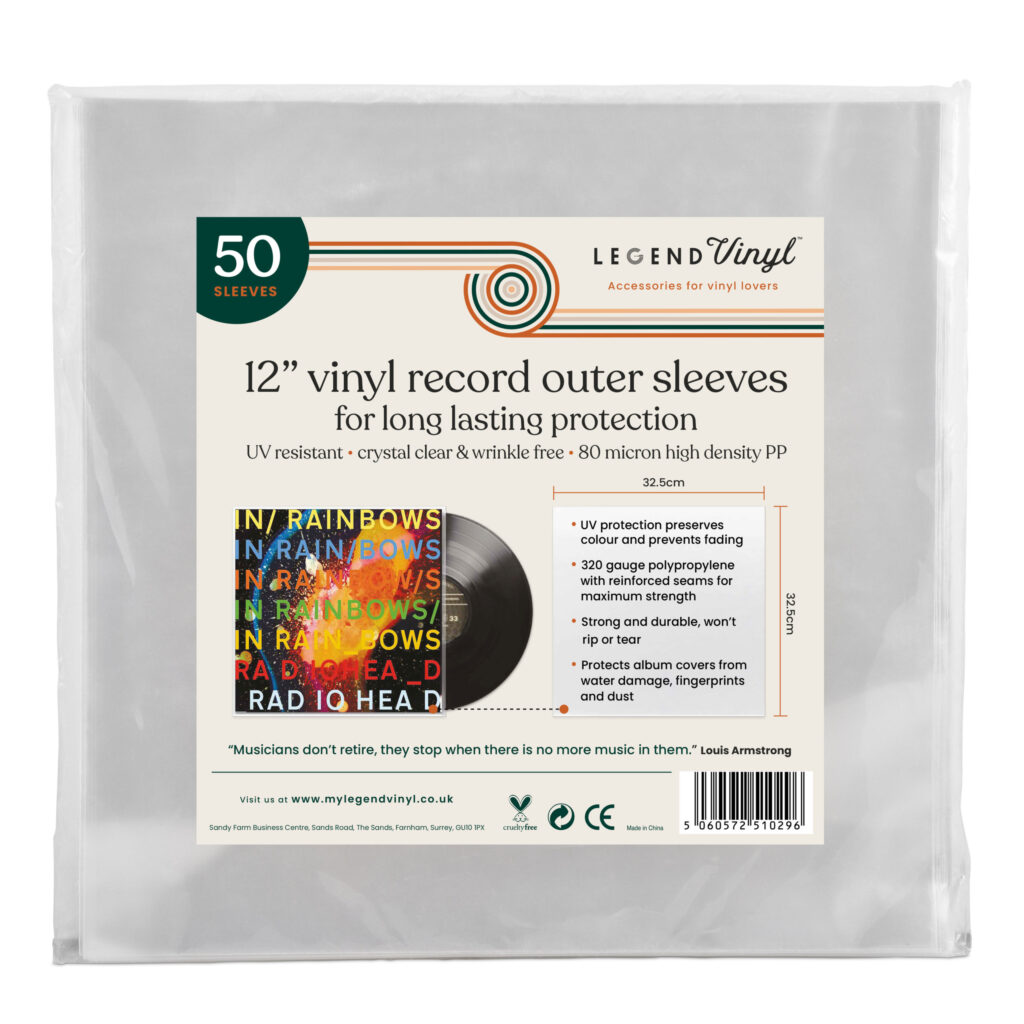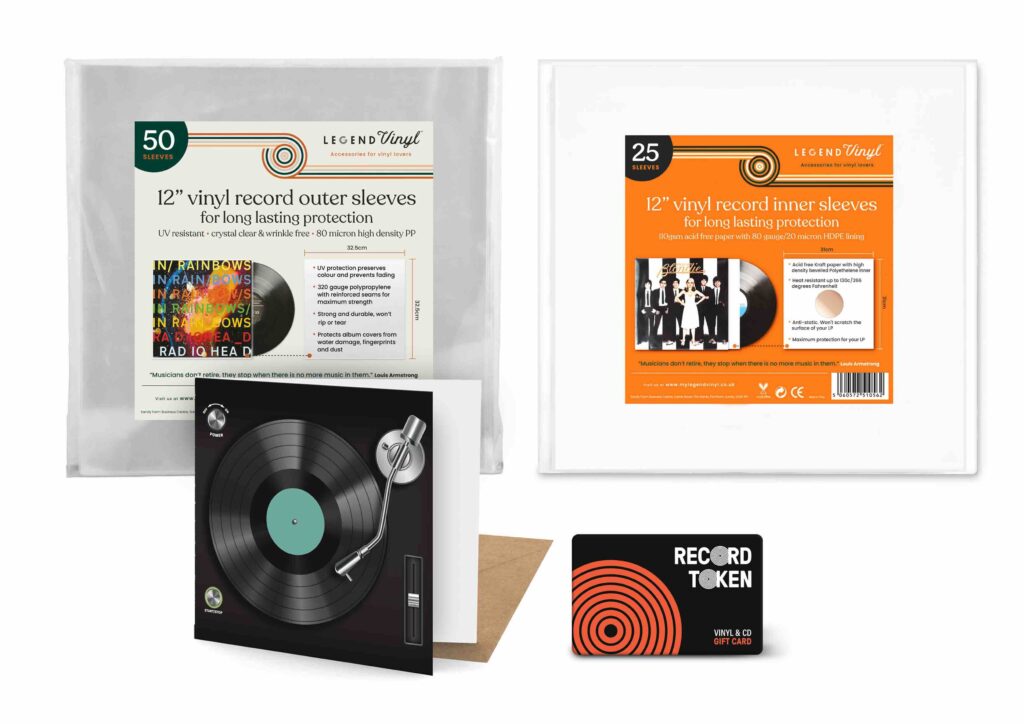As the aspects of record collecting go, it can be all too easy to neglect learning how to store vinyl records properly. This surely seems nonsensical: if we truly care about record collecting and listening to records, then why would we not want to take care of our records as much as possible, to ensure that they play properly for years to come?
Thus, today we will be ensuring that you, humble reader, will be as well equipped as possible to look after your records and show them the respect they deserve.
Why Do We Need to Know How to Store Vinyl Records?
If we are being really and truly honest, the vinyl record is a far from perfect format. It is a very sensitive thing, vulnerable to many small evils, hence why knowing how to store vinyl records correctly can lead to the long life of your collection.
One of the main factors that affects the sanctity of discs is heat, where a vinyl disc can be under the pressure of external factors enough to more or less change its shape. Polyvinyl plastic is a popular material for most of vinyl discs, a form of crude oil shaped not unlike a frisbee and integral to how vinyl records are made. It ought to be obvious to anyone that this material is inherently sensitive to heat. Would you put a piece of plastic anything on a radiator and let it sit for an extended period of time? I would hope not.
This is plastic as real as it gets, which, during its exposure to heat, becomes softer and starts to mould into whatever shape you’re pressing it into. Since vinyl records are rather thin, to begin with, it does not take much to pressure them into a new mould. In a similar vein, there are alternative aspects of the atmosphere of a room which can have an impact on a disc’s shape, not least the humidity of the room in which you store them.
Does Direct Sunlight Kill Records?
Not only this, but a vinyl disc is also sensitive to direct sunlight, thus it is best to always replace a disc in its sleeve as soon as you finish with it. Direct sunlight can indeed play with the grooves of the disc, melting them and moulding them into another shape much like heat alone can, or else blunting them and wearing out the details within, both of which cause the disc to act up in obvious ways.
Even a record’s sleeve can suffer from direct sunlight in the very same way, with the sleeve’s exposure to this or other light sources being one of the main reasons for their appearing bleached and/or weathered; just look at those you might see at a yard sale or in a second-hand store and you will know what we mean here.
How to Store Vinyl Records with Preventative Measures
Before we learn how to store your valuable vinyl records, it would be best to learn some basics on how to prevent them from getting any damage in a more holistic sense. The vinyl record is, after all, a fragile and sensitive thing, barely able to maintain its structure during its lifetime, definitely not without proper mainetance in the right conditions.
Avoid the Sun
A solid first step is to keep records away from direct sunlight as much as possible. No matter how negligible it might feel to us, the heat imparted can deal a significant impact on the physicality of a vinyl disc. This same sunlight can even cause damages to the sleeve and the record itself, with the steady exposure to heat eventually warping a disc beyond recognition. Keep the records away from windows and heating, and make sure that you do not store your records in the car on a hot day!
Don’t Stack the Records
A second step you might take in preventing your records from warping is to avoid stacking them as much as possible. Though their weight alone might not seem like much, an individual disc’s weight can accumulate, which can not only contribute to excess pressure applied to the records but also can align with any dust or dirt caught in the sleeves, meaning that pressure is thus exerted on these small bits of dirt, forcing scratches into the face of the afflicted discs.
Humidity Matters
A third important thing to consider is the humidity of the space which you are using to store your records. The humidity of a basement or attic room, for example, is almost certainly going to cause some damage to your collection if left for a longer period of time. Therefore, you would do your best to find a space that isn’t overly humid, or you should consider installing a dehumidifier if you have not got the option of a less naturally humid space.

How To Store Vinyl Records: 3 Possible Solutions
So, now that we have thought about and put ourselves in the headspace to think about the adequate vinyl storage of our collection, we can finally tackle the ins and outs of learning how to store vinyl records. We will be going through a few of the methods you might use to store your own collection, those more well known and common in the audiophilic community, though by no means an exhaustive list of the range of possible options you might pursue for yourself.
Record Shelf
It is objectively better to store records upright rather than storing them flat, for reasons previously stated. You should avoid at all costs storing flat, though you can do it if you can’t help it.
The excess pressure exerted from stacking can not only warp a record through tension applied but can also force minute particles of dust and dirt along the surface, irreparably scratching it. Weight affects these grains of dirt, sending them forth across the disc’s surface.
If you are indeed someone unable or unwilling to install a shelf specifically for the purpose of learning how to store vinyl records, then you can always use a small space against a wall in your house, leaning the records against it so as to apply as little pressure on the discs as possible.
Record Display Shelf Unit in Vintage Oak with Acrylic Ends
Showcase your vinyl collection with our Record Display Shelf featuring sleek acrylic ends. Stylish and sturdy, it keeps your albums organised while adding a modern, minimalist touch to your space.
Only 3 left in stock
In Stock
Next day delivery available
60 day no-quibble guarantee
100% secure checkout
Our Guarantee
Legend Vinyl helps vinyl enthusiasts achieve the best sound while protecting, storing, and displaying their collections with high-quality accessories.
Backed by a 100% satisfaction no-quibble guarantee, we ensure your vinyl gets the care it deserves.
Trusted by professionals | Over 100,000 satisfied customers
Polyurethane Plastic Vinyl Record Sleeves
Where some products can be more concerned with the disc, plastic sleeves such as these are more concerned with preserving the sleeve and keeping dust out of the jacket and thus out of the way of the disc.
This is an oft-neglected aspect of the ins and outs of record collecting and you will often purchase a record whose disc will be in A-1 condition but with a sleeve that looks more like rags than anything it is attempting to be. If so much of the experience of listening to and appreciating a record is in these sleeves if listening to a record properly – sitting back and holding the sleeve aloft like art (for that is what it is, and why album covers are famous for being an album art) – is in the sleeve, then why must you treat it so?
12″ LP Sleeves For Vinyl Records
Protect your vinyl collection with our 12″ LP Sleeves. UV resistant and crystal clear, these durable, wrinkle-free sleeves safeguard your albums and artwork, keeping them in pristine condition for years to come.
In Stock
Next day delivery available
60 day no-quibble guarantee
100% secure checkout
Our Guarantee
Legend Vinyl helps vinyl enthusiasts achieve the best sound while protecting, storing, and displaying their collections with high-quality accessories.
Backed by a 100% satisfaction no-quibble guarantee, we ensure your vinyl gets the care it deserves.
Trusted by professionals | Over 100,000 satisfied customers
Why You Should Store Records in Sleeves
Luckily there are sleeves that can rectify this or at least act as a preventative measure. You will no doubt have seen similar accessories on some of the records in your local record store, though those used in record stores are too often murky and almost opaque. And this is understandable since it would be rather pricey to fit every record in a record store with brand new vinyl record sleeves each time, though this is precisely what you can do with your own collection!
With these sleeves, you can easily and affordably preserve the album art without the expense of not being able to view it from time to time with the sleeve still on. The crystalline and wrinkle-free polypropylene are not only good for viewing the record beneath but also boasts protection from UV radiation, for a record sleeve will often fall under distortion and fading after prolonged exposure to the light of the sun.
Vinyl Storage Crate
The most common and proud option to learn how to store vinyl records is likely with a storage crate of some sort. Allowing a place for each collector to exhibit their collection for all visitors to see, in pride of place in their listening environment can be tricky and very often an enthusiast’s collection might be too large for the space it is asked to occupy. The only option would seem to strike a middle ground between the proud exhibiting of one’s collection and economical storing away of it all.
This is a particularly difficult middle ground to strike, though a wooden vinyl record storage crate fits perfectly for the job. The purpose of these wooden vinyl record storage crates is strict of providing your record collection with the adequate protection it deserves while exhibiting them for the world to see. Wood as a prevailing material means these usually last long and will only grow stronger and more beautiful with age and the ageing of the strong wood finish.
Benefits of a Storage Crate
This strength aligns with the robust dexterity offered by inbuilt wheels that they are often provided with. Unlike other methods for storing records, such as the kind of record crates that a DJ is likely to take from job to job, these crates ought to be able to hold up to 100 LPs, even when you equip them with the kind of plastic sleeves that are going to provide them with even more extra protection. Though this is a massive and almost insurmountable weight for one person to bear, it is a weight that the wheels can negate completely.
Not only will a crate like this allow record collectors to store a larger collection in style, but will also lend validity to the term ‘crate digging’, allowing the owner of this wooden crate to cate dig just about every time they go looking for a record of theirs to spin.
Final Tones
So, there you have it! Hopefully, you feel at least somewhat better informed on how to store vinyl records, and now feel able to invest some time and hard-earned cash in some of the methods outlined above, so that you might show your record collection the proper respect it deserves or at least is ready to do some further research on the topic.
FAQs How to Store Vinyl Records
If entirely necessary, yes, and if the amount you are storing is not too large, then this will be much better. However, it is strongly encouraged that, in storing your records, you try at all costs to store them upright. Small particles of dirt and dust and whatever else can become lodged in the record’s sleeve, between the disc and the sleeve, and in being stacked atop one another, these minute pieces of dirt, otherwise unable to have any sort of impact, will be compelled to scratch themselves across the surface of the disc and could cause some irreparable and lifelong damage to the sanctity of the disc. Thus, you would do your best to proceed with caution.
Well, this question will definitely depend on just where you intend to store the records in question. If the conditions are optimal, if the humidity and temperature especially are rendered at their absolute best for the preservation of the records, then they could conceivably be stored for an incredibly long time. This is what museums do with artefacts and objects of interest, for every object is decaying before our eyes, no matter how fast or slow it might be happening. However, if the conditions are not right, then a record could very easily decay and fall into disrepair very quickly indeed, but the answer to this question really lies in the specific conditions under which the records are left in.
It is strongly encouraged that, in storing your records, you try at all costs to store them upright. Small particles of dirt and dust and whatever else can become lodged in the record’s sleeve, between the disc and the sleeve, and in being stacked atop one another, these minute pieces of dirt, otherwise unable to have any sort of impact, will be compelled to scratch themselves across the surface of the disc and could cause some irreparable and lifelong damage to the sanctity of the disc. Thus, you would do your best to proceed with caution.
There are no doubt many lifehacks you might follow in order to ensure the sanctity of your record collection, though these will all likely pertain to three key elements that, if heeded and attended to, will make sure that your collection is kept in as solid a condition as possible for as long as possible. First, and arguably most important, is heat, which can have an incredibly detrimental effect on records if left unattended. Secondly, sunlight, informed by heat, can have just as detrimental an effect on the structural integrity of a disc. Third, though no less important, is the humidity of the space in which the records are stored.


